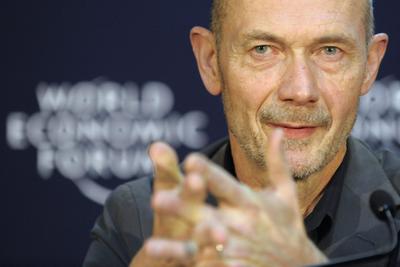According to the IMF, trade volumes for emerging and developing economies increased by over 13 per cent in 2010, compared with a 10–11 per cent increase for advanced economies. According to UNCTAD, FDI to developing countries shrank much less than it did in the West in 2009. Inward and outward FDI for China and India remained buoyant in 2009 and have increased significantly in 2010.
The crisis also opened a new chapter of big government. This is more evident in domestic ‘crisis interventions’ — financial-sector bailouts, fiscal-stimulus packages and easy-money policies — than in trade policy.
The effects of crisis interventions are likely to be far worse in the West than in emerging markets. They leave oceans of public debt that portend higher taxes and real interest rates, in addition to inflationary threats. They also give cover to arbitrary interventions by politicians and bureaucrats and create long-term entitlements. This will stifle private-sector incentives to save, invest and innovate, and will restrict competition and raise costs for businesses and consumers.
The news is much better for international trade: the world has not hurtled into tit-for-tat protectionism. As the WTO notes, obvious protectionism — mainly border trade barriers — have affected just over 1 per cent of international trade. But this does not take account of non-traditional, non-border protectionism — mainly complex domestic regulations that spill over the border and discriminate against international trade. Many crisis interventions fall into this category: intrusive new financial regulations that affect cross-border finance; public-procurement restrictions; industrial subsidies; and onerous product and process standards — including environmental standards to promote renewable energy and combat climate change.
Regulatory protectionism is more opaque than traditional protectionism and much less constrained by WTO rules. The danger is that, if not contained, it will spread gradually to cover bigger swathes of international trade. That is what happened in the 1970s and early 1980s: rampant domestic interventions to combat external shocks led to creeping protectionism. The result: industrial overcapacity and delayed global recovery and globalisation.
Now turn to the leading players in trade policy, starting with the USA and EU. Both are defensive.
Trade comes very low down the list of the White House’s priorities. President Obama is not an instinctive free trader; and he has powerful protectionist forces inside his tent, notably the unions. This is the least free trade-minded administration since the Carter administration, and it is not leading with open-market initiatives. Rather, the US is abrogating its traditional leadership role in world trade and, with no substitute leader to open markets and strengthen trade rules, leaving a global vacuum.
The picture in the EU is similar. The EU’s single market is weighed down by sovereign debt crises, still-malfunctioning banking systems, industrial strife, sclerotic labour markets, bloated welfare states and intergovernmental squabbling. When ‘Eurosclerosis’ happened last time around, in the 1970s and 1980s, EU trade policy turned to navel-gazing and protectionism against outsiders. That is the risk today.
In China, liberalisation has stalled since about 2006, corresponding with industrial-policy measures to promote state-owned enterprises. China’s crisis response — essentially an investment binge — bolsters the public sector and state power at the expense of the domestic private sector and foreign multinationals. This exacerbates China’s structural fault-line of over-investment and under-consumption. And there is the real risk of surplus manufacturing capacity flooding into shrinking export markets in Europe and North America, causing protectionist retaliation against China.
Commendably, the Beijing leadership has not rocked the boat too much during the crisis: it has not resorted to a big increase in protectionism. But stalled trade and FDI liberalisation, the absence of domestic structural reforms and creeping protectionism threaten future trade tensions.
Other large emerging markets, notably India and Brazil, reflect a worldwide pattern: stalled liberalisation at home, and a slight increase in crisis-related protectionist measures, but no major reversal of previous market opening reforms.
Turning to the WTO, the Doha Round remains stuck, but even concluded its results would be very modest, doing little to combat emerging regulatory protectionism. Still, the first objective must be to finish the Doha Round as soon as possible, however modest the result; and the next objective to move on to a post-Doha agenda that addresses 21st century trade realities. But breaking the WTO’s logjam requires filling a leadership vacuum left by the US, EU and main emerging markets.
Finally, the G20, like the G8, has proved ineffective on trade policy. At best it is a useful chat forum. But deep-seated differences among members will prevent ‘hard coordination’ — that is, binding, enforceable rule changes.
Overall, the short-term challenge is to arrest the slide to big government domestically and creeping protectionism abroad. The medium-term challenge is to resume trade and FDI liberalisation combined with domestic structural reforms — substantial unfinished business from before the crisis struck. That is primarily a matter for unilateral action by governments and competitive emulation among them. It can be reinforced by international policy cooperation in the WTO and G20, but not too much can be expected of cumbersome global-governance mechanisms.
Razeen Sally is Director of the European Centre for International Political Economy (ECIPE) and a Senior Lecturer in International Political Economy at the London School of Economics.

